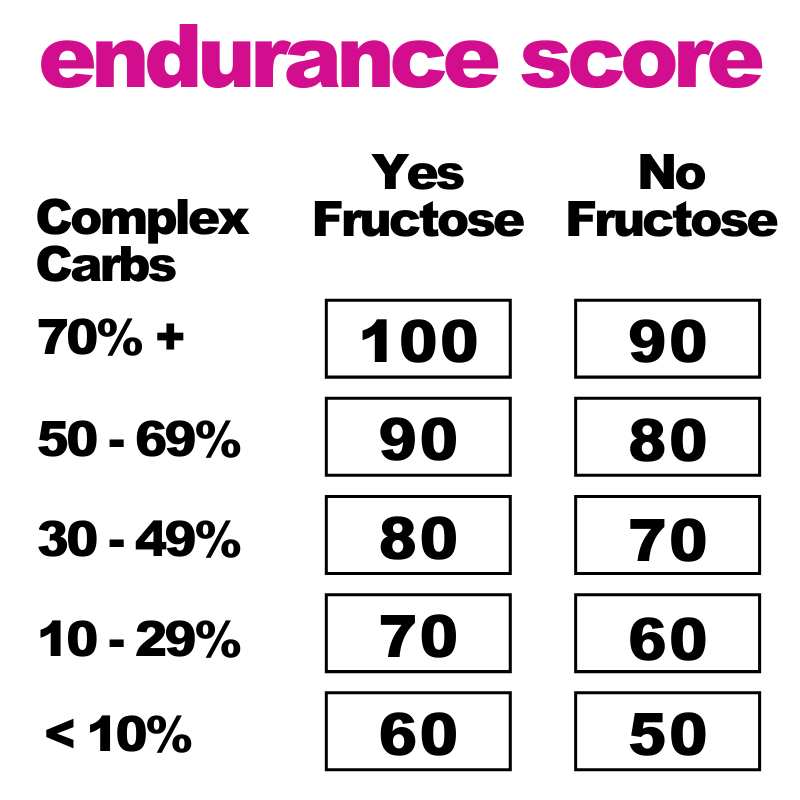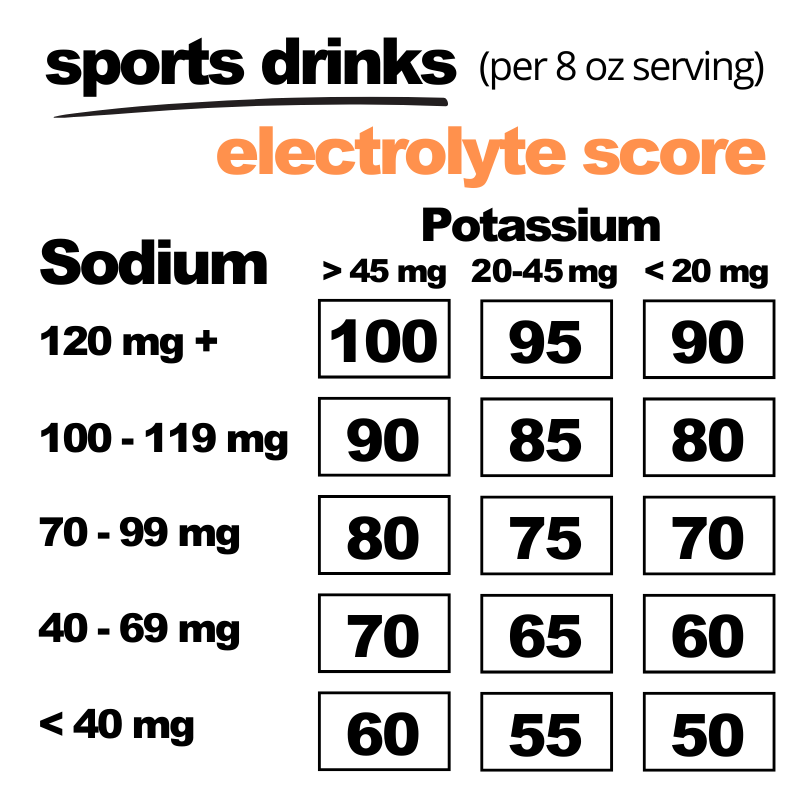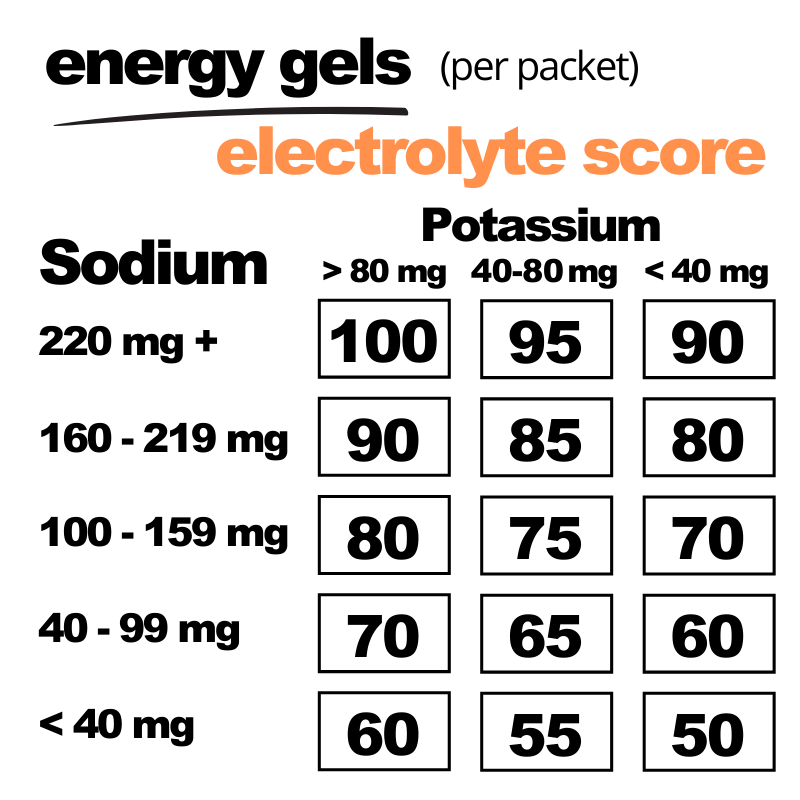Product Scoring
Product Scoring
For each product we list both an endurance score and an electrolyte score. We are not implying that a product with a low score will not provide any benefits, or that products that receive the highest scores are the only ones you should use. Everyone needs to figure out what works best for themself, often through trial and error. Many products with low endurance scores are all sugar and can be used successfully over shorter durations. But in longer activities products with high endurance scores are recommended. These scores should help you figure out which products will work best for you.

complex carbs
Carbohydrates are either considered sugars or complex carbs based on their molecular structure. A product that is 100% sugar obviously doesn’t have any complex carbs. Complex carbs have a significantly larger molecular structure than simple sugars. This allows the athlete to uptake more energy, up to twice as much. For this reason, we give products with more complex carbs a higher endurance score.
To read more details about the benefits of complex carbs, read this:
fructose
Fructose is processed in the body by a different type of transporter than all other forms of carbs. If you don’t have any fructose then you have transporters not being utilized. Therefor you will not be able to derive as much energy as you would when using some fructose. For this reason we give products with fructose a higher endurance score.
To read more details about the additional energy provided by fructose, read this:

The American College of Sports Medicine (ACSM) has studied electrolyte replacement in athletes for years. Their recommendations are to replenish 500 mg sodium and 200 mg potassium per liter of absorbed fluid. The above table is based on an 8 oz sports drink serving and scored accordingly. A score of 100 meets or exceeds the ACSM recommendations.

When energy gels are absorbed, water is the transport vehicle via osmosis. We are able to calculate the approximate amount of water that will travel with the gel, therefor we can estimate the amount of sodium and potassium that will be provide per liter of absorbed fluid. We then compare it to the ACSM recommendations as discussed under sports drinks and score accordingly. A score of 100 meets or exceeds the ACSM recommendations.
stomach issues
There are a number of ingredients that in some athletes can cause stomach distress including artificial sweeteners, fiber and ingredients that have slow digestive requirements such as fat and protein. When a product includes any of these ingredients we list them so that you are aware of things to look for if you’re having stomach issues.
scoring products not listed
If you use products not already listed, that’s not a problem. Sherpa will use the same system to score your products:


